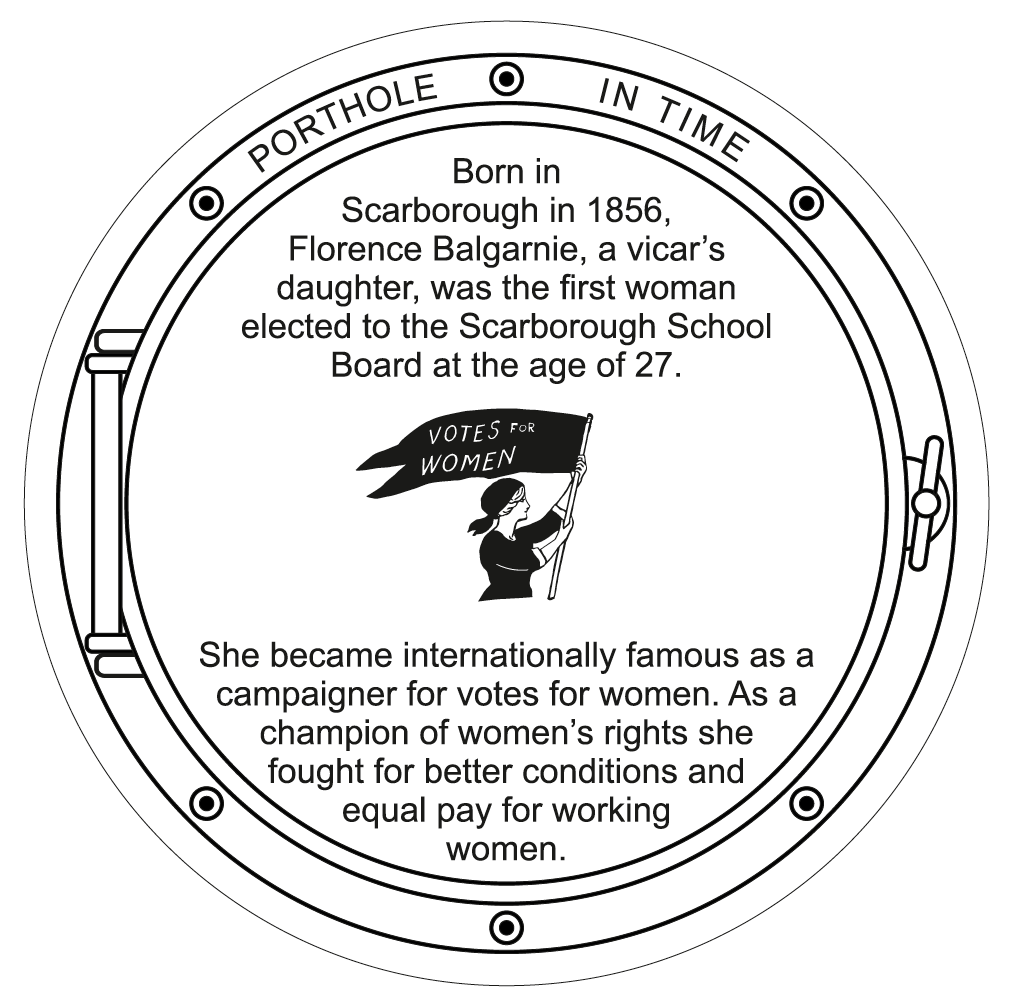
Florence Balgarnie was born in Scarborough in 1856, the daughter of the popular Reverend Robert Balgarnie. While living in Scarborough, she became the secretary of the town’s University Extension Scheme, which provided accessible lectures to the community, and in 1883 won an election to the Scarborough School Board, the first woman to do so, serving for two years.
Her experience in organising and public speaking developed further as she moved to London to become the Secretary of the Central National Society for Women’s Suffrage, where she lectured and lobbied politicians to support women’s right to vote. She attended women’s rights conferences in Paris and Washington D.C. and became known as one of the best women speakers of her day.
She was involved in politics all her life. As a member of the Women’s Liberal Federation, she pushed her party to support women’s rights. In the East End of London, she helped organise working women’s trade unions, and with the British Women’s Temperance Association she campaigned against the alcohol trade. Of great importance to her, also, were her campaigns in Britain for the appointment of women factory inspectors and for female police matrons, where she influenced the Home Secretary to appoint women to be responsible for the welfare of women in police cells. As a journalist and lecturer, she shared her knowledge and experience of policing standards, alcohol laws, and women’s rights in the many countries she visited to persuade Britain to change its policies.
She was involved in international campaigning too. Inspired by Ida B Wells’ movement against the lynching of African Americans, she helped form the British Anti-Lynching Committee. Championing African-American rights made her unpopular in much of the British and American press. In 1903 she was the only European elected to the Indian National Congress in Madras, telling the delegates that ‘you may trust me to raise my voice on behalf of India’. At home, she was involved in the peace movement, and was an implacable opponent of the British Empire’s actions in the Boer War.
She died in Florence in 1928, aged 72, while travelling in Italy.